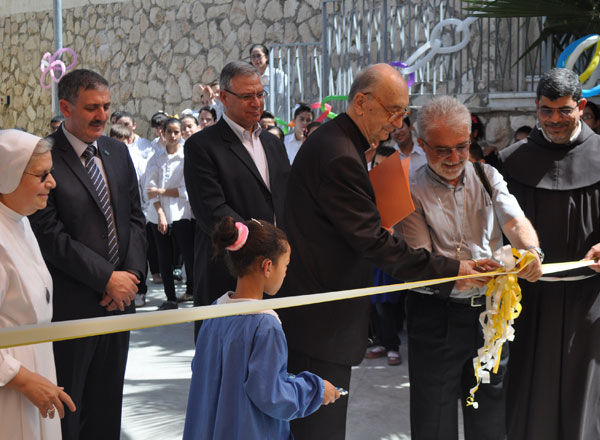
Monsignor Giovannetti: "For Effetà our concrete passion."
by Fulvio Scaglione
A relationship of great affection and collaboration has been built over time between the John Paul II Foundation and the Effetà Institute. When it comes to concrete works, in the specific case hundreds of Palestinian hearing-impaired children and youth in urgent, and sometimes desperate, need of care and assistance, certain loyalties can also be weighed and measured. In recent years alone, the Foundation has managed to channel 2.5 million euros to the Institute through projects approved by the Italian Agency for Cooperation and Development at the Ministry of Foreign Affairs, in addition to several hundred thousand euros in private donations that the Foundation has raised through crowdfunding campaigns. Not only that: the Foundation's action also stimulated the Palestinian public health system, which had no shortage of problems and was not very well equipped for the problems of hearing-impaired children, but understood what formidable excellence the Effetà Institute constituted.
About this intense relationship of collaboration and exchange, which has resulted in, among other things, many missions and visits to Bethlehem by the Foundation's specialists, we speak with His Excellency Monsignor Luciano Giovannetti, bishop emeritus of Fiesole and president of the Foundation from its inception until last year. "Of Effetà and its extraordinary work the Foundation was concerned even when it did not yet exist as a Foundation, when we were carrying out solidarity interventions in the Middle East as the diocese of Fiesole. Then since 2007, the year precisely when the Foundation was born, Effetà has always been one of our first and fundamental commitments. So much so that we have not failed to raise its needs and problems even in institutional or Vatican fora such as ROACO (Riunione delle Opere per l'Aiuto alle Chiese Orientali), even in more recent times, when certain sources of funding for the Institute reduced their contribution and certain expenses, such as those for personnel or for the modernization of facilities, became burdensome. The explanation for our "passion" for Effetà is simple. For Palestinian society it is a unique case, a place that dispenses not only medical care that no one else could provide but that by its action, without useless proclamations, promotes the reasons for dialogue and tolerance. And for thousands of families, over this half century, it has been an irreplaceable help and relief."
